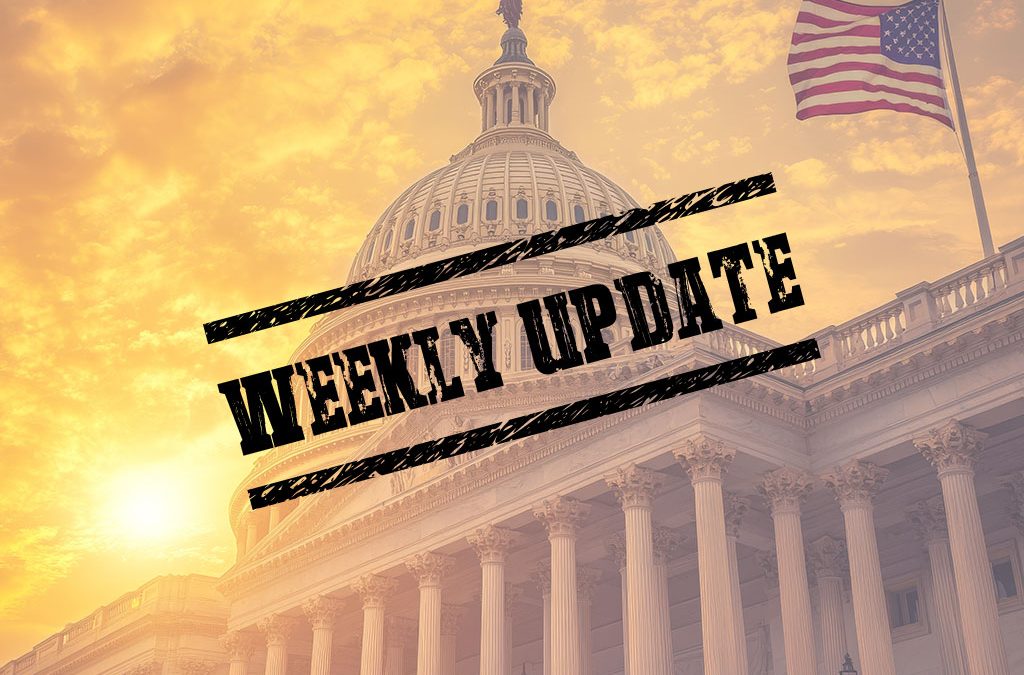The data is in! See what family owned businesses are saying about today’s challenges and opportunities.
Republicans to Scrutinize Energy-Tax Credits with Trifecta: As Republicans head into January with control over the presidency and both chambers of Congress, discussion over what to include in a tax package will invariably delve into whether to repeal some of the energy-tax credits in the Inflation Reduction Act (IRA, Pub. L. 117-169) and CHIPS and Science Act (Pub. L. 117-167). Prior to the election, Republican leaders signaled that they would closely scrutinize these credits but would not rush to full repeal. For example, House Speaker Mike Johnson (R-LA) signaled disapproval of many of the IRA’s credits but left the door open to retaining some of them, preferring to use a “scalpel and not a sledgehammer” in analyzing each credit.
Biofuel Producers Write to Congress Urging Extension of the Section 40A Tax Credit: On Nov. 14, associations representing farmers, feedstock suppliers and fuel producers sent a letter to House and Senate leadership requesting Congress to extend the Section 40A Biodiesel and Renewable Diesel Blenders Credit by one year. Starting Jan. 1, 2025, the Internal Revenue Code will shift from technology-specific tax incentives, such as Section 40A, to the technology-neutral Section 45Z Clean Fuel Production Credit. The letter expresses concern that the Treasury Department has not issued sufficient guidance on the Section 45Z credit with fewer than 60 days until this changeover occurs, creating uncertainty among the farming and biofuels community. The letter urges Congress to delay the changeover from Section 40A to Section 45Z by one year to ensure that fuel producers have “the requisite time to receive and fully understand the final rule implementing the section 45Z credit” after the Treasury Department issues final guidance.
Trump’s Win Puts Increased Scrutiny Over OECD Two-Pillar Deal: When President-elect Trump takes office in January, his administration will face a decision over whether to continue the Biden administration’s ongoing negotiations within the Organisation for Economic Co-operation and Development (OECD) over its proposed two-pillar international tax framework. Tax-policy experts have indicated that Pillar Two, which includes an undertaxed profits rule (UTPR) to tax international corporate revenue at a minimum rate of 15%, is “in peril” due to the potential for a Trump administration to retaliate against countries with steep tariffs on imports should they impose a UTPR on U.S. companies. However, other experts contend that, while the Trump administration is expected to take a “more aggressive posture” towards protecting the U.S. tax base, renegotiation may be the preferred route due to concerns among members of Congress.
Biden Administration Temporarily Backs Off from Challenging Canada’s DST: On Nov. 14, a spokesperson for the United States Trade Representative (USTR) indicated that the Biden administration was not planning to challenge Canada’s digital services tax (DST) under the terms of the United States-Mexico-Canada Agreement (USMCA), after initially seeking consultation with Canada over the issue on Aug. 30. That consultation request included a 75-day period for the Biden administration to consider requesting a dispute panel should consultations fail. The spokesperson said that consultations with Canada continue and that the USTR “reserve [its] rights to further proceedings, including under the USMCA, should those concerns not be resolved.”
Treasury Department, IRS Issue Proposed Regulations on Tribal Entities: On Oct. 7, the Treasury Department and Internal Revenue Service (IRS) issued proposed regulations on the tax classification of corporations, including limited liability corporations, owned by and formed under tribal governments. The proposed guidance states that tribal entities, entirely owned by a tribe and organized or incorporated exclusively under the laws of that tribe, would not be recognized as separate entities and would not be subject to the federal income tax. The regulations also provide that tribal entities may be eligible for certain Inflation Reduction Act energy-tax credits. A public hearing has been scheduled for Jan. 17, 2025, and comments can be submitted to the Federal Register until Jan. 7.

About Brownstein Hyatt Farber Schreck
Brownstein Hyatt Farber Schreck is a unique law firm. Walk into any of our offices and you’ll immediately recognize a different type of energy. Complacency doesn’t have a place here. Flexibility and inspiration do. Our culture and enthusiasm allow our attorneys, policy consultants and legal staff to stay ahead of our clients’ needs and provide them with the resources they require to meet their business objectives.
We hope you've enjoyed this article. While you're here, we have a small favor to ask...
As we prepare for what promises to be a pivotal year for America, we're asking you to consider becoming a member.
The need for fact-based reporting of issues important to family owned businesses and protecting a lifetime of savings has never been greater. Now more than ever, successful families and family owned businesses are under fire. That's why Family Enterprise USA is passionately working to increase the awareness of issues important to family owned businesses built on hard work, while continuing to strengthen our presence on Capitol Hill. The issues we fight for or against with Congress in Washington DC include high income tax rates, possible elimination of valuation discounts, increase in capital gains tax, enactment of a wealth tax, and the continued burden of the gift tax, estate tax and generation skipping tax.
Family Enterprise USA promotes generationally owned family business creation, growth, viability, and sustainability by advocating for family businesses and their lifetime of savings with Congress in Washington DC. Since 2007, Family Enterprise USA has represented and celebrated all sizes, professions and industries of family-owned enterprises and multi-generational employers. It is a bi-partisan 501.c3 organization. Family foundations can donate.
#incometax #CapitalGainsTax #R&DExpensing #DontPunishSuccess #GrantorTrusts #StepUpinBasis #likeKindExchanges #AcceleratedDepreciation #EstateTax #Deathtax #wealthtax #taxLegislation #CongressionalCaucus #incometaxrates #repealestatetax #AdvocatingForFamilyBusinesses #FamilyOwnedBusiness #WomenOwnedBusiness @FamilyEnterpriseUSA #FamilyEnterpriseUSA

